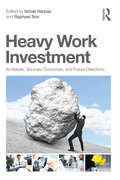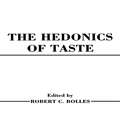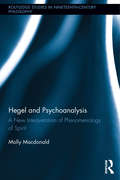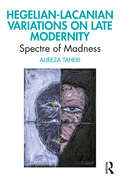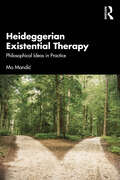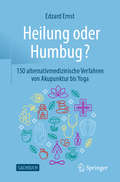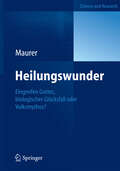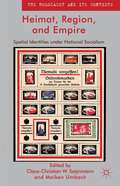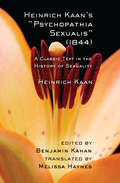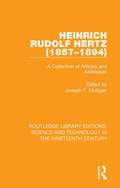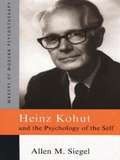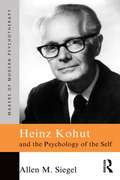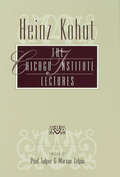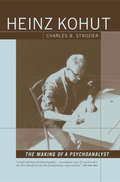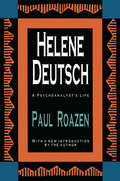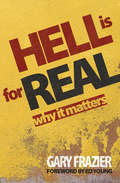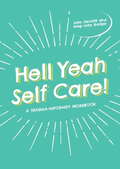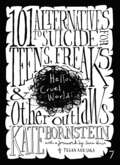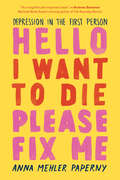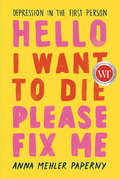- Table View
- List View
Heavy Work Investment: Its Nature, Sources, Outcomes, and Future Directions (Applied Psychology Series)
by Itzhak Harpaz Raphael SnirThe book deals with the concept of Heavy Work Investment (HWI) recently initiated by Snir and Harpaz. Since its introduction the interest in the general HWI model has increased considerably. The book illustrates the development of HWI conceptualization, theory, and research. It deals with the foremost HWI subtype of workaholism. However, it also compares workaholism as a "negative" HWI subtype with work devotion/passion/engagement, as a "positive" HWI subtype. Most importantly, it addresses HWI in general, including its possible situational subtypes. In view of Snir and Harpaz's claim that the study of situational heavy work investors is relatively scarce, this certainly constitutes a promising step in the right direction. Finally, it deals with timely and important topics examined by prominent international researchers on Heavy Work Investment and such issues as: personality factors of workaholism, work-life balance, cross-cultural similarities and differences in HWI, work addiction and technology, HWI and retirement, and intergenerational similarity in work investment.
Hector y el secreto de la felicidad
by François LelordUna as0mbrosa historia de descubrimiento personal. Un increíble viaje en busca de la felicidad. Érase una vez un joven psiquiatra francés llamado Hector que se sentía vacío, pues sabía muy bien que, a pesar de su buena voluntad, no era capaz de conseguir que la gente fuera feliz. Ser un buen profesional y tener un buen ojo para indicar el tratamiento adecuado no le llenaba. Necesitaba algo más.Pensó que, si hallaba el origen de la infelicidad, podría desvelar el secreto de las personas felices. También se planteó una larga serie de preguntas sobre la felicidad: ¿Por qué soñamos con alcanzarla? ¿Qué es más importante, el éxito o la relación con los demás? ¿Depende de las circunstancias personales o de una particular forma de ver las cosas?A raíz de estas cuestiones, Hector inició un viaje que lo llevó de China al continente africano, pasando por Estados Unidos... Estaba dispuesto a llegar hasta el fin del mundo para obtener una respuesta.«Una novela deliciosamente naíf, un pasatiempo iconoclasta que te reconcilia con el mundo. En vez de dar lecciones anticuadas de moral, Lelord nos ofrece una definición de felicidad diferente.» L'Express«Una caja replena de delicias filosóficas, cuyo efecto es sorprendentemente gozoso.»The Independent«Un libro que seducirá hasta al lector más erudito y contenido.»Cosmopolitan«Una historia magistral cuyo protagonista, tras la búsqueda en profundidad de valores, emerge como un fenomenal aventurero.» Aachener Zeitung
Hedonics of Taste
by Robert C. BollesA study of hedonism could conceivably operate on a massive scale. This book, however, concentrates specifically on the hedonics of taste. The editor notes some important reasons for limiting the argument in this manner. First of all, this is an area of hedonics in which a handful of experimenters continued to do research during a period when hedonism might have been lost altogether. Secondly, the past ten years have seen quite a number of researchers turn their attention to taste preferences, and so it seems appropriate to celebrate the fact that new findings can be incorporated into a very old conceptual framework: the ancient concept of hedonism. The contributors approach their subject from many different angles. Historical, conceptual, and methodological chapters are presented; developmental aspects, psychological substrates, and the social considerations of hedonics are discussed. This volume offers viewpoints from dataphiles and theorists, mechanists and cognitivists, unifiers and disrupters -- a diversity that reflects the vital state of psychology today.
Hegel and Psychoanalysis: A New Interpretation of "Phenomenology of Spirit" (Routledge Studies in Nineteenth-Century Philosophy)
by Molly MacdonaldBoth Hegel's philosophy and psychoanalytic theory have profoundly influenced contemporary thought, but they are traditionally seen to work in separate rather than intersecting universes. This book offers a new interpretation of Hegel's Phenomenology of Spirit and brings it into conversation the work of two of the best-known contemporary psychoanalysts, Christopher Bollas and André Green. Hegel and Psychoanalysis centers a consideration of the Phenomenology on the figure of the Unhappy Consciousness and the concept of Force, two areas that are often overlooked by studies which focus on the master/slave dialectic. This book offers reasons for why now, more than ever, we need to recognize how concepts of intersubjectivity, Force, the Third, and binding are essential to an understanding of our modern world. Such concepts can allow for an interrogation of what can be seen as the profoundly false and constructed senses of community and friendship created by social networking sites, and further an idea of a "global community," which thrives at the expense of authentic intersubjective relations.
Hegel's Theory of Responsibility
by Mark AlznauerA crucial aspect of Hegel's practical philosophy is his theory of responsibility. This theory is both original and radical in its emphasis on the role and importance of social and historical conditions as a context for our actions. But even those who agree that there is something valuable in Hegel's emphasis on sociality are not in agreement about what that something is or about how Hegel argues for it. Mark Alznauer offers the first book-length account of the structure of the theory and its place within Hegel's thought as a whole. The reader is carefully walked through the psychological, social and historical aspects of responsibility in Hegel's texts. The book demonstrates that attention to the concept of responsibility reveals the true nature of Hegel's controversial claims about the inherent sociality of human action.
Hegelian-Lacanian Variations on Late Modernity: Spectre of Madness
by Alireza TaheriThe current rise in new religions and the growing popularity of New Ageism is concomitant with an increasingly anti-philosophical sentiment marking our contemporary situation. More specifically, it is philosophical and psychoanalytic reason that has lost standing faced with the triumph of post-secular "spirituality". Combatting this trend, this treatise develops a theoretical apparatus based on Hegelian speculative reason and Lacanian psychoanalysis. With the aid of this theoretical apparatus, the book argues how certain conceptual pairs appear opposed through an operation of misrecognition christened, following Hegel, as "diremption". The failure to reckon with identities-in-difference relegates the subject to more vicious contradictions that define central aspects of our contemporary predicament. The repeated thesis of the treatise is that the deadlocks marking our contemporary situation require renewed engagement with dialectical thinking beyond the impasses of common understanding. Only by embarking on this philosophical-psychoanalytic "path of despair" (Hegel) will we stand a chance of achieving "joyful wisdom" (Nietzsche). Developing a unique dialectical theory based on readings of Hegel, Lacan and Žižek, in order to address various philosophical and psychoanalytic questions, this book will be of great interest to anyone interested in German idealism and/or psychoanalytic theory.
Heidegger on Being Uncanny
by Katherine WithyThere are bizarre moments when we feel like strangers to ourselves. Through an investigation of Heidegger's concept of uncanniness, Katherine Withy explores what such experiences reveal. She shows that we can be what we are only if we do not fully understand what it is to be us, and points toward what it is to live well as an uncanny human being.
Heideggerian Existential Therapy: Philosophical Ideas in Practice
by Mo MandićHeideggerian Existential Therapy focuses on Martin Heidegger’s philosophy in order to provide both a wider accessibility as well as understanding of its relevance to therapeutic practice. This book unveils in great depth the core tenets of Heidegger’s thinking, without presuming any philosophical background. It attends to the manner in which we inevitably undergo disruptions, disturbances, perturbations, breakdowns, and collapses in the course of our lives, and on the way in which they can be addressed and understood from an existential therapeutic perspective. The text covers Heidegger’s ideas with illustrations and examples, in order to free them from the confines of philosophy in a way that then enables them to be brought directly into the therapy room. Each chapter takes the reader from an initial philosophical grounding of this approach towards a clear and concrete way of working existentially with clients. The text is primarily intended for trainee and practising psychotherapists, but will undoubtedly be of considerable relevance and interest to coaches, consultants, and trainers who wish to expand and deepen their skills and approaches in their own fields.
Heilung oder Humbug?: 150 alternativmedizinische Verfahren von Akupunktur bis Yoga
by Edzard ErnstAlternative Medizin ist populär: etwa 70% der deutschen Bevölkerung hat im vergangenen Jahr mindestens eine Art von alternativer Behandlung angewendet. Doch was bringen Antioxidantien, Aloe Vera, Kinesiologie und Reiki eigentlich? Kann man an der Zunge oder der Iris erkennen, ob es den inneren Organen gut geht? Welche Erfolge können Geistheilung, autogenes Training oder Hypnotherapie vorweisen? Es gibt vielschichtige Gründe für die große Beliebtheit dieser Methoden - Fehlinformationen sollten dabei eigentlich keine Rolle spielen. Leider prasseln auf Anwender und Hilfesuchende eine Menge an Fehlinformationen ein. Diese sind ausschlaggebend dafür, dass falsche, unkluge oder sogar gefährliche therapeutische Entscheidungen getroffen werden.Dieses Buch hilft dem Leser, sich im Labyrinth der alternativen Medizin zurechtzufinden. Neben wesentlichen Hintergrundinformationen zu alternativer Medizin wie dem Placebo-Effekt, wissenschaftliche Nachweismethoden und gesellschaftlichen Pro- und Contra Argumenten, führt das Buch durch 150 alternative therapeutische und diagnostische Methoden und beurteilt sie unter anderem hinsichtlich Wirksamkeit, Kosten und Gefahrenpotential. Das Buch richtet sich an Leser, die ein Interesse an ihrer Gesundheit haben, daher auch mit der Alternativmedizin liebäugeln und eine evidenzbasierte Analyse suchen. Der Autor Edzard Ernst erforscht seit 25 Jahren alle Aspekte der alternativen Medizin. Er und sein Team haben weit über 1000 von Fachkollegen begutachtete Arbeiten und viele Bücher zu diesem Thema veröffentlicht, darunter More Harm than Good? The Moral Maze of Complementary and Alternative Medicine (2018) und Homöopathie - Die Fakten [unverdünnt] (2016) bei Springer. Seine Arbeit wurde mit mehr als einem Dutzend Preisen ausgezeichnet, darunter dem John-Maddox-Preis 2016. Er ging 2012 in den Ruhestand und ist emeritierter Professor der Universität Exeter und spielt dauerhaft eine aktive Rolle in der öffentlichen Debatte über alternative Medizin.
Heilungswunder
by Yvonne MaurerHeilungswunder sind umstritten. Die unterschiedlichen Sichtweisen, die in den christlichen Konfessionen vertreten werden, sind in dem Buch dargelegt. Ausgehend von einem pluralistischen Ansatz, wird die Frage diskutiert, inwieweit Heilungs(zusatz)angebote sinnvoll sind - anhand der unterschiedlichen medizinischen, theologischen und philosophischen Positionen sowie der Perspektive der Volksfrömmigkeit. Der Band bündelt Expertenwissen aus unterschiedlichen Disziplinen und ist zugleich Leitfaden für seelsorgerisch und (psycho)therapeutisch Tätige.
Heimat, Region, and Empire
by Claus-Christianw. Szejnmann Maiken UmbachThis collection brings together international scholars pursuing cutting-edge research on spatial identities under National Socialism. They demonstrate that the spatial identities of the Third Reich can be approached as a history of interrelated dimensions; Heimat, region and Empire were constantly reconstructed through this interrelationship.
Heinrich Kaan’s “Psychopathia Sexualis”: A Classic Text in the History of Sexuality
by Melissa Haynes Benjamin A. Haynes Heinrich Kaan"With Heinrich Kaan's book we have then what could be called the date of birth, or in any case the date of the emergence, of sexuality and sexual aberrations in the psychiatric field." Michel Foucault, Abnormal: Lectures at the Collège de France, 1974-1975Heinrich Kaan's fascinating work--part medical treatise, part sexual taxonomy, part activist statement, and part anti-onanist tract--takes us back to the origins of sexology. He links the sexual instinct to the imagination for the first time, creating what Foucault called "a unified field of sexual abnormality." Kaan's taxonomy consists of six sexual aberrations: masturbation, pederasty, lesbian love, necrophilia, bestiality, and the violation of statues. Kaan not only inaugurated the field of sexology, but played a significant role in the regimes of knowledge production and discipline about psychiatric and sexual subjects. As Benjamin Kahan argues in his Introduction, Kaan's text crucially enables us to see how homosexuality replaced masturbation as the central concern of Euro-American sexual regulation. Kaan's work (translated into English for the first time here) opens a new window onto the history of sexuality and the history of sexology and reconfigures our understanding of Richard von Krafft-Ebing's book of the same name, published some forty years later.
Heinrich Rudolf Hertz: A Collection of Articles and Addresses (Routledge Library Editions: Science and Technology in the Nineteenth Century #6)
by Joseph F. MulliganThis book, first available in 1994, was published to commemorate the one-hundredth anniversary of Heinrich Hertz’s death at the terribly young age of thirty-six. The introductory biography together with eleven papers by Hertz and seven about him are intended to highlight the importance of Hertz’s contributions to physics and at the same time to serve the needs of anyone interested in doing research on this highly gifted scientist.
Heinz Kohut and the Psychology of the Self
by Allen M. SiegelA review of the pioneering work of psychoanalyst Kohut describing the theoretical development of his ideas and exploring their significance in various therapeutic situations outside of psychoanalysis. Siegal outlines Kohut's concepts of empathy, self-objects, transference, and his seminal work in narcissism, tying in his clinical observations and concerns with the meaning of a "curative psychology." The volume features an introductory psychological portrait of Kohut written by Ernest S. Wolf. Annotation c. by Book News, Inc., Portland, Or.
Heinz Kohut and the Psychology of the Self (Makers of Modern Psychotherapy)
by Allen M. SiegelHeinz Kohut's work represents an important departure from the Freudian tradition of psychoanalysis. A founder of the Self Psychology movement in America, he based his practice on the belief that narcissistic vulnerabilities play a significant part in the suffering that brings people for treatment. Written predominantly for a psychoanalytic audience Kohut's work is often difficult to interpret. Siegel uses examples from his own practice to show how Kohut's innovative theories can be applied to other forms of treatment.
Heinz Kohut and the Psychology of the Self (Makers of Modern Psychotherapy)
by Allen M. SiegelHeinz Kohut's work represents an important departure from the Freudian tradition of psychoanalysis. A founder of the Self Psychology movement in America, he based his practice on the belief that narcissistic vulnerabilities play a significant part in the suffering that brings people for treatment. Written predominantly for a psychoanalytic audience Kohut's work is often difficult to interpret. Siegel uses examples from his own practice to show how Kohut's innovative theories can be applied to other forms of treatment.
Heinz Kohut: The Chicago Institute Lectures
by Paul Tolpin Marian TolpinDelivered to advanced candidates at The Chicago Institute for Psychoanalysis in 1974-75, The Chicago Institute Lectures reveal a Kohut in transition, a Kohut wrestling with the creative tension in psychoanalysis between tradition and innovation, between continuity and change, even as he worked toward the psychology of the self "in the broad sense" that marked his decisive break from traditional psychoanalytic thought. Lightly edited by the Tolpins to preserve their authenticy, these lectures preserve the voice, the intellectual style, and the pedagogical bearing of a gifted creator in the very midst of creation.We find here a casual Kohut, thinking through in a relaxed and conversational way the assumptions that would become foundational to mature self psychology. The developmental trajectory of self-selfobject relationships, the role of selfobject failures in different types of psychopathology, the complex relationship between givens and the psychological environment in pathogenesis, the role of conflict in normal development and in psychopathology--these are among the recurrent themes taken up in these lectures. And there are, as well, Kohut's provocative asides on the child-rearing practices of his day, including the contrast between over- and understimulation, the impact of healthy parental sexuality on child development, and the difference between the normal oedipal phase of the self and the Oedipus complex. The clinical viewpoint of mature self psychology is anticipated in many ways, perhaps no more clearly than in Kohut's powerful reassessment of the perversions.The Chicago Institute Lectures are more than a key historical document in the evolution of psychoanalytic self psychology; they preserve the voice, the intellectual style, and the pedagogical bearing of a gifted creator in the very midst of creation.
Heinz Kohut: The Making of a Psychoanalyst
by Charles StrozierHeinz Kohut (1913-1981) stood at the center of the twentieth-century psychoanalytic movement. After fleeing his native Vienna when the Nazis took power, he arrived in Chicago, where he spent the rest of his life. He became the most creative figure in the Chicago Institute for Psychoanalysis, and is now remembered as the founder of 'self psychology,' whose emphasis on empathy sought to make Freudian psychoanalysis less neutral. Kohut's life invited complexity. He obfuscated his identity as a Jew, negotiated a protean sexuality, and could be surprisingly secretive about his health and other matters. In this biography, Charles Strozier shows Kohut as a paradigmatic figure in American intellectual life: a charismatic man whose ideas embodied the hope and confusions of a country still in turmoil. Inherent in his life and formulated in his work were the core issues of modern America. The years after World War II were the halcyon days of American psychoanalysis, which thrived as one analyst after another expanded upon Freud's insights. The gradual erosion of the discipline's humanism, however, began to trouble clinicians and patients alike. Heinz Kohut took the lead in the creation of the first authentically home-grown psychoanalytic movement. It took an emigre be so distinctly American. Strozier brings to his telling of Kohut's life all the tools of a skillful analyst: intelligence, erudition, empathy, contrary insight, and a willingness to look far below the surface.
Helene Deutsch: A Psychoanalyst's Life (History Of Ideas Ser.)
by Paul RoazenStudent and protege of Sigmund Freud, Helene Deutsch was one of the most influential psychoanalysts of her time. An early woman analyst, Deutsch was an ardent feminist and a leading proponent of Freud's controversial theories about the psychology of women. Deutsch was also one of the first prominent career women to combine a professional life with motherhood-even though she never resolved her own conflicts over those contradictory demands. At the time of her death in 1982 at the age of 97, Helene Deutsch was the last survivior of Freud's original circle from Vienna. This volume is a definitive account of the life and works of this remarkable-and enigmatic-woman. The author knew Deutsch personally and was given exclusive access to her papers after her death.The private life of Helene Deutsch was as unconventional as her professional life. While Felix Deutsch, a physician who specialized in psychosomatic medicine, was to remain her husband for fifty years and father her son, Martin, their relationship was highly eccentric. Roazen produces evidence that indicates Felix Deutsch may have been homosexual; also that their son was raised primarily by Felix, as Helene was more interested in her career than was Felix in his, and the Deutsches often lived continents apart.With the rise of Nazism, Helene Deutsch departed in 1935 for America She was welcomed in Cambridge, Massachusetts by the Boston Psychoanalytic Society and was made director of the Society's new institute for the training of analysts. Her two-volume The Psychology of Women, published in 1945, remains one of the foundations of modern analysis. Roazen's biography is an authoritative portrait of a pioneer of psychoanalysis, and one of the unique women of her day. It will be of interest to psychoanalysts, cultural historians, and specialists in women's studies.
Hell Is For Real: Why Does It Matter?
by Gary FrazierAccording to the results of recent surveys, Americans overwhelmingly believe that HEAVEN exists, though a much smaller number believe that HELLexists, with only one-tenth of one percent believing they will go there when they die. Gary Frazier helps readers: Discern what beliefs are based on fact or fiction Discover the truth in the midst of so much deception Understand the depth of Scripture that speaks of HELL more than HEAVEN. Hell is for Real is a clear search for truth, and truth matters for the simple reason that we all have a divine appointment with death. What if those who do not believe in HELL die one day and find they made a tragic and eternal mistake? Where do we turn for real answers? Should we look to movies, television, and stories of personal experiences, psychics, or religion? Cemeteries and mausoleums dot the landscape of America as evidence and reminders of the sad reality of death. The good news is there is a source of hope that provides answers for each and every one who cares to seek the truth. Join the search and choose wisely because, eternity is too long to be wrong and Hell is for Real.
Hell Yeah Self-Care!: A Trauma-Informed Workbook
by Alex Iantaffi Meg-John BarkerTake a moment to pause... Breathe... And ask yourself, what does self-care mean to you?Times are very tough-in a world that pushes us to go faster, be the best, and get ahead of others, we often forget to focus on ourselves, leaving us with anxiety, anger, burnout, stress, and trauma. In this creative workbook and journal leading mental health pioneers, Alex Iantaffi and Meg-John Barker, provide you with the tools to begin your self-care journey and develop sustainable self-care routines and rituals that work for you. Featuring a diverse range of experiential exercises, activities, and opportunities for reflection, while drawing upon a range of practices and approaches including systemic and existential therapies, Buddhist mindfulness, Pagan ritual, trauma-informed practice, intersectional feminism and more. This book explores self-care in all its forms and covers somatic self-care, plural selves, emotions and feelings, relationships, and care for others.Empowering, illuminating and written with authenticity and honesty throughout-this is a manual for everyone and will help you look after yourself on your path towards happiness and wellbeing.
Hello Again: The most dangerous killer is the one you already know. (Evelyn Talbot series, Book 2) (Evelyn Talbot)
by Brenda NovakThis is SILENCE OF THE LAMBS meets Karen Rose...New York Times bestseller Brenda Novak's second novel in the Evelyn Talbot series, Hello Again, sees the return of psychiatrist Dr Evelyn Talbot in her purpose-built facility housing America's most terrifying psychopaths. Dr Evelyn Talbot has spent her life looking over her shoulder after her teenage boyfriend Jasper Moore kidnapped, tortured and left her for dead. She only just escaped with her life, he disappeared without a trace, and twenty-two years later Evelyn can still feel him lurking in the shadows. Studying the psychopathic minds at Hanover House - Alaska's first mental health facility for psychopaths - is how she will track him down.Lyman Bishop could be the perfect subject. Evelyn discovers he is just as intelligent and trustworthy as Jasper appeared, and he hardly seems like the man who has been convicted of kidnapping and murdering several women.But if Evelyn has learnt anything at all from her terrifying experience, it's that the most unassuming can be the most dangerous of all.Look for the other gripping novels in the Evelyn Talbot series - Her Darkest Nightmare, Face Off and the prequel novella, Hanover House, available now.
Hello Cruel World: 101 Alternatives to Suicide for Teens, Freaks, and Other Outlaws
by Kate Bornstein Sara QuinCelebrated transsexual trailblazer Kate Bornstein has, with more humor and spunk than any other, ushered us into a world of limitless possibility through a daring re-envisionment of the gender system as we know it.Here, Bornstein bravely and wittily shares personal and unorthodox methods of survival in an often cruel world. A one-of-a-kind guide to staying alive outside the box, Hello, Cruel World is a much-needed unconventional approach to life for those who want to stay on the edge, but alive.Hello, Cruel World features a catalog of 101 alternatives to suicide that range from the playful (moisturize!), to the irreverent (shatter some family values), to the highly controversial. Designed to encourage readers to give themselves permission to unleash their hearts' harmless desires, the book has only one directive: "Don't be mean." It is this guiding principle that brings its reader on a self-validating journey, which forges wholly new paths toward a resounding decision to choose life.Tenderly intimate and unapologetically edgy, Kate Bornstein is the radical role model, the affectionate best friend, and the guiding mentor all in one.
Hello I Want to Die Please Fix Me: Depression In The First Person
by Anna Mehler PapernyAn engrossing memoir-meets-investigative report that takes a fresh, frank look at how we treat depression. Depression is a havoc-wreaking illness that masquerades as personal failing and hijacks your life. After a major suicide attempt in her early twenties, Anna Mehler Paperny resolved to put her reporter’s skills to use to get to know her enemy, setting off on a journey to understand her condition, the dizzying array of medical treatments on offer, and a medical profession in search of answers. Charting the way depression wrecks so many lives, she maps competing schools of therapy, pharmacology, cutting-edge medicine, the pill-popping pitfalls of long-term treatment, the glaring unknowns and the institutional shortcomings that both patients and practitioners are up against. She interviews leading medical experts across the US and Canada, from psychiatrists to neurologists, brain-mapping pioneers to family practitioners, and others dabbling in strange hypotheses—and shares compassionate conversations with fellow sufferers. Hello I Want to Die Please Fix Me tracks Anna’s quest for knowledge and her desire to get well. Impeccably reported, it is a profoundly compelling story about the human spirit and the myriad ways we treat (and fail to treat) the disease that accounts for more years swallowed up by disability than any other in the world. If you or someone you know is struggling with suicidal thoughts, help is available. Contact the National Suicide Prevention Lifeline at 800-273-8255.
Hello I Want to Die Please Fix Me: Depression in the First Person
by Anna Mehler PapernyAward-winning journalist Anna Mehler Paperny's stunning memoir chronicles with courageous honesty and uncommon eloquence her experience of depression and her quest to explore what we know and don't know about this disease that afflicts almost a fifth of the population--providing an invaluable guide to a system struggling to find solutions. As fascinating as it is heartrending, as outrageously funny as it is serious, it is a must-read for anyone impacted by depression--and that's pretty much everybody. Depression is a havoc-wreaking illness that masquerades as personal failing and hijacks your life. After a major suicide attempt in her early twenties, Anna Mehler Paperny resolved to put her reporter's skills to use to get to know her enemy, setting off on a journey to understand her condition, the dizzying array of medical treatments on offer and a medical profession in search of answers. Charting the way depression wrecks so many, she maps competing schools of therapy, pharmacology, cutting-edge medicine, the pill-popping pitfalls of long-term treatment, the glaring unknowns and the institutional shortcomings that both patients and practitioners are up against. She interviews leading medical experts across Canada and the US, from psychiatrists to neurologists, brain-mapping pioneers to family practitioners, and others dabbling in strange hypotheses--and shares compassionate conversations with fellow sufferers.Hello I Want to Die Please Fix Me tracks Anna's quest for knowledge and her desire to get well. Impeccably reported, it is a profoundly compelling story about the human spirit and the myriad ways we treat (and fail to treat) the disease that accounts for more years swallowed up by disability than any other in the world.
